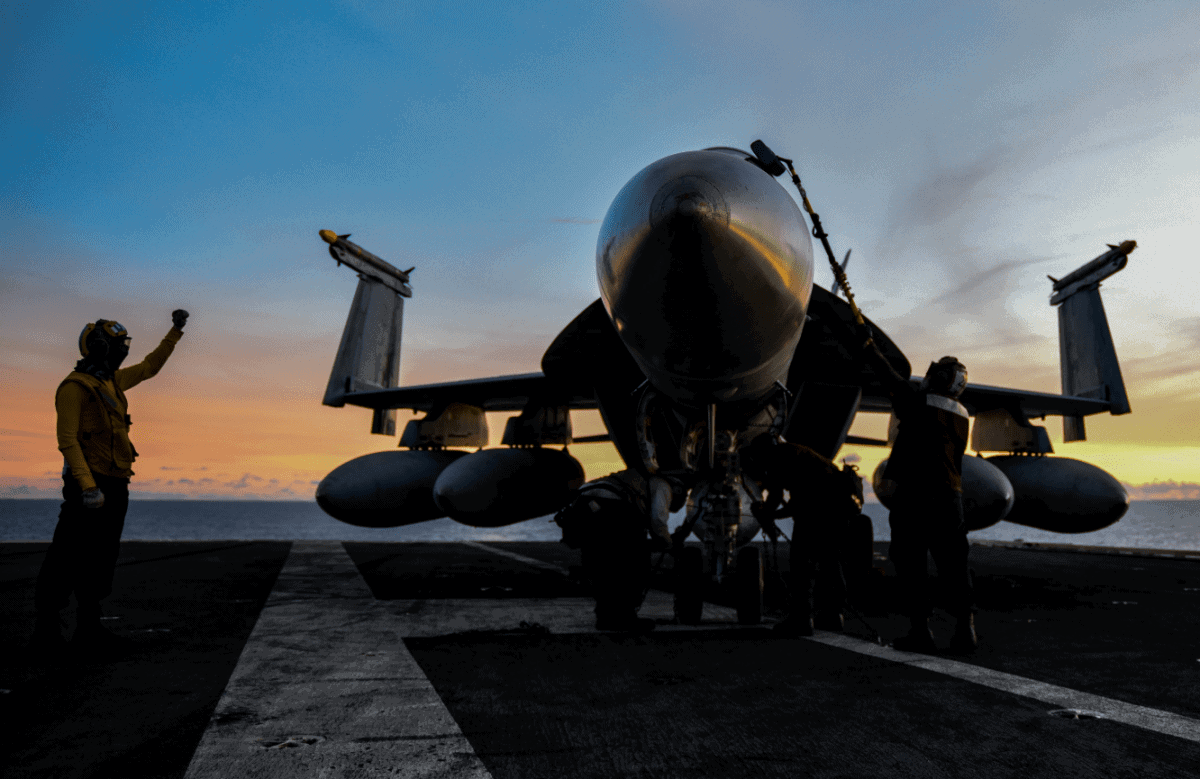US Navy ‘not intimidated’ by China ‘carrier killer’ threat

The battle of the South China Sea continues — this time, in tweets.
The US Navy took a jibe at China after a news report claimed that Beijing has a wide selection of anti-aircraft carrier weapons and the South China Sea is fully within grasp of the Chinese army, The Hindustan Times reported.
The US Navy responded, that it is “not intimidated.”
“China has a wide selection of anti-aircraft carrier weapons like DF-21D and DF-26 “aircraft carrier killer” #missiles. South China Sea is fully within grasp of the #PLA; any US #aircraftcarrier movement in the region is at the pleasure of PLA: analysts,” a tweet from China’s Global Times said.
In response, the US Navy’s chief of information tweeted, “And yet, there they are. Two @USNavy aircraft carriers operating in the international waters of the South China Sea. #USSNimitz & #USSRonaldReagan are not intimidated.” It tagged the Global Times report and used the hashtag #AtOurDiscretion.
The United States has sent the two aircraft carriers — USS Ronald Reagan and USS Nimitz — to the South China Sea to participate in a military exercise.
The exercise is long-planned but comes as China conducts military drills of its own in the area, near the contested Paracel Islands, exercises that have been criticised by the US and other countries.
The US Navy’s operation of two nuclear-powered aircraft carriers in the South China Sea region further represents a significant show of force and comes amid heightened tensions between Washington and Beijing over a number of areas, including Hong Kong.
Meanwhile, in a direct rebuke from Beijing, a commentary published Monday suggests US military action over the South China Sea was destined to be futile and American allies would be harmed, the South China Morning Post reported.
In commentary in the PLA Daily, Zhang Junshe, a senior colonel in the Chinese navy, said the US should stop its provocative acts in the South China Sea and Beijing was determined to safeguard its maritime sovereignty, SCMP reported.
“The US is not a country in the region and it is doing large-scale exercises in the South China Sea, far away from its homeland, yet at the same time it is unreasonably accusing China of doing normal military exercises at its doorstep,” Zhang said.
“The double-standard remarks from the US cannot disguise its real motives, which is to push militarization and destabilize peace in the South China Sea,” said Zhang, who is also a senior research fellow at the People’s Liberation Army Naval Military Studies Research Institute.
He said the US military, despite being affected by the coronavirus pandemic, was holding tight to a Cold War mindset and persisted in hitting out at the competition, SCMP reported.
According to Foreign Policy, defense officials worry that China has seized on the coronavirus pandemic to ramp up its efforts to militarize the so-called nine-dashed line, Beijing’s sweeping claim to sovereignty over the vast majority of the South China Sea, a conduit for trillions of dollars in annual trade and a potential motherlode of oil and natural gas.
China’s ongoing aggression in the South China Sea has gotten a boost as the economic headwinds from the pandemic, which originated in China, has given Beijing more incentive to fuel nationalism through aggressive foreign-policy actions.
“It seems as though their foreign-policy adventurism has not in any way been clipped since coronavirus,” said Randall Schriver, who served as the Pentagon’s assistant secretary for Indo-Pacific security affairs until December 2019. “Stoking nationalism is helpful for a time when they’re struggling at home.”
The high-profile carrier operations are seen as a way to signal continued US resolve, after another carrier, the USS Theodore Roosevelt, was laid up in Guam for two months after nearly 1,000 sailors contracted the virus.
“I think there were some questions after the Roosevelt was out of commission for a bit as to whether our capacity to do things was diminished,” said Schriver, who is now chairman of the Project 2049 Institute, a Washington-based think tank focused on U.S. policy in Asia.
“It’s a long-term play to demonstrate that the Chinese haven’t changed the nature of that water.”
Photo: Sailors clean an F/A-18E Super Hornet attached to the Diamondbacks of Strike Fighter Squadron (VFA) 102 on the flight deck of the Navy aircraft carrier USS Ronald Reagan (CVN 76). U.S. Navy photo by Mass Communication Specialist 3rd Class Gabriel A. Martinez/Released
Link: https://asiatimes.com/2020/07/us-navy-not-intimidated-by-china-carrier-killer-threat/











